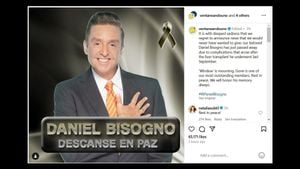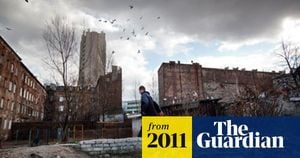On February 20, 2025, Real Sociedad hosted Midtjylland at the Reale Arena for the second leg of their Europa League playoff, aiming to secure their place in the next round after winning the first leg 2-1. The atmosphere was electric as fans anticipated their team's advance following last week’s success.
Coached by Imanol Alguacil, Real Sociedad entered the match with confidence, buoyed by their recent triumph against Midtjylland where Brais Méndez netted from the penalty spot and Takefusa Kubo added another goal. Despite suffering a disappointing defeat against Betis shortly before the playoff, Alguacil's squad remained focused on their Europa League objectives, indicating their determination to break a long drought of over 26 years without advancing from this stage.
Alguacil emphasized the importance of the match, stating, "For the good of the club, the players, and myself, I believe my future this season must be decided very late," as he maintained focus on the game instead of contemplating his future with the club. Such comments have accentuated the stakes, as both fans and players rallied around the possibility of progression.
On the other side, Midtjylland, with Thomas Thomasberg at the helm, faced the uphill task of overturning the initial deficit. The Danish side arrived with the momentum of winning their weekend Superliga match. Buksa had already proven to be pivotal, as he was the only goalscorer for his team during the first leg and continued to be their primary attacking threat. "We come with the respect we should have for such a good team, but I truly believe we have the opportunity to surprise," Thomasberg remarked before the match, reflecting his team's resolve.
With both teams boasting their best lineups, the anticipation was palpable as kick-off approached. Real Sociedad aimed to assert their dominance on home turf. The starting eleven were arranged strategically, with Oyarzabal leading the attack alongside Kubo and Barrene, supported by a solid midfield pairing of Sucic and Olasagasti. Their defensive line included prominent players such as Aguerd and Zubeldia.
Midtjylland, appearing determined to capitalize on any defensive lapses from their opponents, set up with Buksa leading the line. They aimed to exploit the vulnerabilities shown by Sociedad in recent matches, especially considering their mixed performances abroad.
Early on, Real Sociedad sought to take control of the game, displaying their attacking prowess with multiple attempts on goal. They looked threatening from the outset, and their persistence paid off as they pressed Midtjylland's backline. The home crowd rallied behind their team, spurring them on through every chance created.
Yet, Midtjylland was not without their merits, and as they began to grow confident, they adjusted, pushing back against the Sociedad attack. At one moment, they were awarded a penalty after Castillo was fouled by Barrene inside the area—an opportunity they failed to capitalize on, increasing the tension on the pitch.
Despite facing pressure, Sociedad remained resolute, and their performance was characterized by resilience and creativity. They consistently tested Midtjylland's goalkeeper, Lössl, as shots from Kubo and Barrene flew dangerously close but were dealt with effectively.
With the clock ticking, both sides were engaged in tactical maneuvers, ensuring no mistakes could cost them dearly. The defensive strategies became more apparent as the teams began prioritizing solidifying their backlines rather than risking counterattacks. Alguacil and Thomasberg both observed the frantic pace of the game, making strategic adjustments from the sidelines.
Real Sociedad, with their home advantage, managed to maintain more possession, effectively controlling the tempo of the match. Yet, it was evident they needed to put the game beyond doubt to secure qualification, especially considering the competitive nature of the Europa League. A draw guaranteed progression, but victory was the ideal outcome.
Throughout the encounter, the technical skill of players like Kubo shone through, proving instrumental for Sociedad. His agility and strategic playmaking abilities provided multiple opportunities, but the final touch eluded them at times. The tension built gradually as each opportunity was missed, leading fans to wonder if they would witness another twist.
By the time the final whistle blew, the outcome reflected their initial advantage. Nonetheless, questions lingered: would Sociedad secure their place with enough breathing room, or would the anxiety of the moment lead to vulnerabilities? The narrative of the match mirrored the passion of European football, enthralling fans both at the stadium and at home.
The match ended with Real Sociedad confirming their place among Europe’s elites as they advanced to the next stage of the Europa League—an achievement celebrated with fervor by the home crowd. Their performance illustrated their potential and served as motivation for subsequent fixtures.



